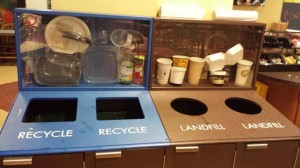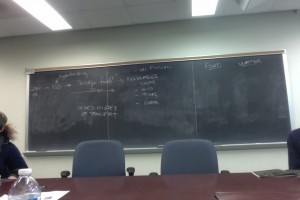As some of you know, I am taking EGRS 352 (Energy Tech and the Modern World) with Prof. Nicodemus. These are the “cur-non” opportunities that she gave us, and although the cur non points (graded out of five points, but can earn up to ten; one point for each one-page single spaced summary we write for each opportunity) are just for EGRS 352 students, I want to get this to the attention of VAST 203 people as it may be an interest. This is the copy-paste of the cur-non opportunities on Moodle:
Wednesday, March 26 a 4:10pm in Hugel 103, hear Roger Burrows, Professor of Sociology and Pro-Warden for Interdisciplinary Development at Goldsmiths, University of London present Super Rich Neighbourhoods In London, a lecture that will extend recent work on the ‘spatialization of class’ to an analysis of the territories of the ‘super rich.’
Thursday, March 27, 6:30 to 7:30 pm at the Nurture Nature Center (downtown), go to Environment and Health Lecture Series: The Pollen around Us. Many of us suffering from spring allergies check for pollen counts in our local weather forecasts. But what is pollen? Why can it be so irritating? Dr. Edlund will introduce us to the beauty of pollen and their interactions with our respiratory and immune systems.
Monday, March 31, 7:30pm to 9:00pm in Kirby 104: Dr. Finbarr Curtis will present his lecture, “It is a Literal Fact: The Scopes Trial as Secular Myth” on the 1925 Scopes Trial, which drew national attention to a Tennessee law that prohibited teaching evolution in public schools, and how institutional frameworks produce science and structure public debate.
Tuesday, April 1st from 7:30-9pm in Oechsle 224: Screening of the film Chasing Ice (part of Earth Month), the story of one man’s mission to change the tide of history by gathering undeniable evidence of our changing planet. With a band of young adventurers in tow, Balog began deploying revolutionary time-lapse cameras across the brutal Arctic to capture a multi-year record of the world’s changing glaciers. Popcorn and refreshments.
One way to get some cur non points is to watch the following documentaries and turn in a 1 page, single spaced, response to that documentary. You may earn up to 3 cur non points this way (I may revise that number upwards, but for now, 3). Here’s the list of acceptable documentaries: Cape Spin, Hot Planet, Switch, Power Surge, No Impact Man, An Inconvenient Truth, The 11th Hour, Gasland (the original one or the new one). If there’s something you think should be on this list, but isn’t talk to me. I will leave it to you capable people to get access to the films. Some are at the library, some are online. I can arrange a viewing of Switch or Power Surge if there is interest. The last day to turn in cur non’s for watching a documentary from this list is Thursday, April 3.
Monday, April 7, 7pm in Oechsle 224: Screening of the documentary RENEWAL: Stories from the Interfaith Environmental Movement, a documentary that captures the vitality and diversity of today’s religious-environmental activists. From within their Christian, Jewish, Buddhist and Muslim traditions, Americans are becoming caretakers of the Earth.
Tuesday, April 8: 12:15-1 in Hugel 100: Brown Bag discussion on Lafayette Recycling. Pizza provided.
Sunday, April 13, 12-2pm at LaFarm, an Earth Month Celebration at LaFarm featuring wood oven pizza, salads, etc made, in part, with LaFarm produce. Tickets required (~$5, I think). If you go to this you need to make an effort to learn about the efforts and progress at LaFarm and write your 1 page (single spaced) response about what you learned about LaFarm.
Tuesday April 15, 7:30pm in Oechsle 224: Gary Nabhan will give the featured Earth Month lecture, “Sustaining Food Security Amidst Climate Uncertainty and Pollinator Decline”. Go to this!
Wednesday, March 23, 12pm in Hugel 100: John Drummond will give a talk on “The Monarch Butterfly Crisis.”Pizza provided.



Recent Comments